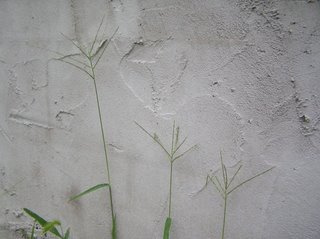 Aging adds to toxicity of Alzheimer's
Aging adds to toxicity of Alzheimer's.
Alzheimer's Donation
Donate Online Now
.
Alzheimer's is a disease of aging because part of the brain's cleanup crew that clears away the toxic buildup becomes less efficient, scientists have found.
Alzheimer's disease is the most common form of dementia. About 290,000 Canadians over 65 have the disease, approximately one in 20 in that age group. The number rises to one in four in those over 85. It slowly robs people of their memories and leads to behavioural changes.
"Our study revealed that the age onset of these diseases is not simply a matter of time but that the aging process plays an active role in controlling the onset of toxicity," said senior author Andrew Dillin, a biologist at the Salk Institute for Biological Studies in La Jolla, Calif.
The brain accumulates a sticky protein called beta-amyloid. Healthy people are able to clear out excess protein, but it builds up in people with Alzheimer's, forming a plaque-like clump in their brain cells.
Researchers haven't been able to figure out if Alzheimer's is a consequence of aging itself or if beta-amyloid simply takes a long time to form.
To find out, Dillin's team turned to roundworms, a common model for geneticists. The experiments are described in Friday's issue of the journal Science.
They found aging erodes the body's detoxification ability, a finding that opens the door to developing drugs to prevent the toxic buildup.
"Every pathway we can discover that modifies amyloid provides us with new drug targets," said Dr. Sam Gandy, a neuroscientist at Philadelphia's Thomas Jefferson University and a spokesman for the Alzheimer's Association.
Toxic cleanup
The researchers experimentally slowed aging in the worms by changing genes in a key pathway for controlling lifespan.
Slowing down aging also slowed the buildup of toxic amyloid in a two-step process, the team found.
In the first step, a cleanup protein called HSF-1 breaks amyloid apart. Then a second protein called DAF-16 clumps together the extra amyloid, reducing its toxicity.
"For a long time large protein aggregates were considered the toxic species," said the study's co-lead author Ehud Cohen, a postdoctoral researcher at the institute.
"The fact that cells protect themselves by temporarily storing small fibrils as [heavier] aggregates marks a clear paradigm shift."
The researchers hope to apply what they've learned to boost the cleanup process and prevent amyloid from accumulating. With files from the Associated Press
Alzheimer's Medication Shows Promise In Treating Nerve Agent And Pesticide Poisoning http://www.medicalnewstoday.com/medicalnews.php?newsid=49108&nfid=al
.
Alzheimer's is a disease of aging because part of the brain's cleanup crew that clears away the toxic buildup becomes less efficient, scientists have found.
Alzheimer's disease is the most common form of dementia. About 290,000 Canadians over 65 have the disease, approximately one in 20 in that age group. The number rises to one in four in those over 85. It slowly robs people of their memories and leads to behavioural changes.
"Our study revealed that the age onset of these diseases is not simply a matter of time but that the aging process plays an active role in controlling the onset of toxicity," said senior author Andrew Dillin, a biologist at the Salk Institute for Biological Studies in La Jolla, Calif.
The brain accumulates a sticky protein called beta-amyloid. Healthy people are able to clear out excess protein, but it builds up in people with Alzheimer's, forming a plaque-like clump in their brain cells.
Researchers haven't been able to figure out if Alzheimer's is a consequence of aging itself or if beta-amyloid simply takes a long time to form.
To find out, Dillin's team turned to roundworms, a common model for geneticists. The experiments are described in Friday's issue of the journal Science.
They found aging erodes the body's detoxification ability, a finding that opens the door to developing drugs to prevent the toxic buildup.
"Every pathway we can discover that modifies amyloid provides us with new drug targets," said Dr. Sam Gandy, a neuroscientist at Philadelphia's Thomas Jefferson University and a spokesman for the Alzheimer's Association.
Toxic cleanup
The researchers experimentally slowed aging in the worms by changing genes in a key pathway for controlling lifespan.
Slowing down aging also slowed the buildup of toxic amyloid in a two-step process, the team found.
In the first step, a cleanup protein called HSF-1 breaks amyloid apart. Then a second protein called DAF-16 clumps together the extra amyloid, reducing its toxicity.
"For a long time large protein aggregates were considered the toxic species," said the study's co-lead author Ehud Cohen, a postdoctoral researcher at the institute.
"The fact that cells protect themselves by temporarily storing small fibrils as [heavier] aggregates marks a clear paradigm shift."
The researchers hope to apply what they've learned to boost the cleanup process and prevent amyloid from accumulating. With files from the Associated Press
Alzheimer's Medication Shows Promise In Treating Nerve Agent And Pesticide Poisoning http://www.medicalnewstoday.com/medicalnews.php?newsid=49108&nfid=al


0 Comments:
Post a Comment
Subscribe to Post Comments [Atom]
<< Home